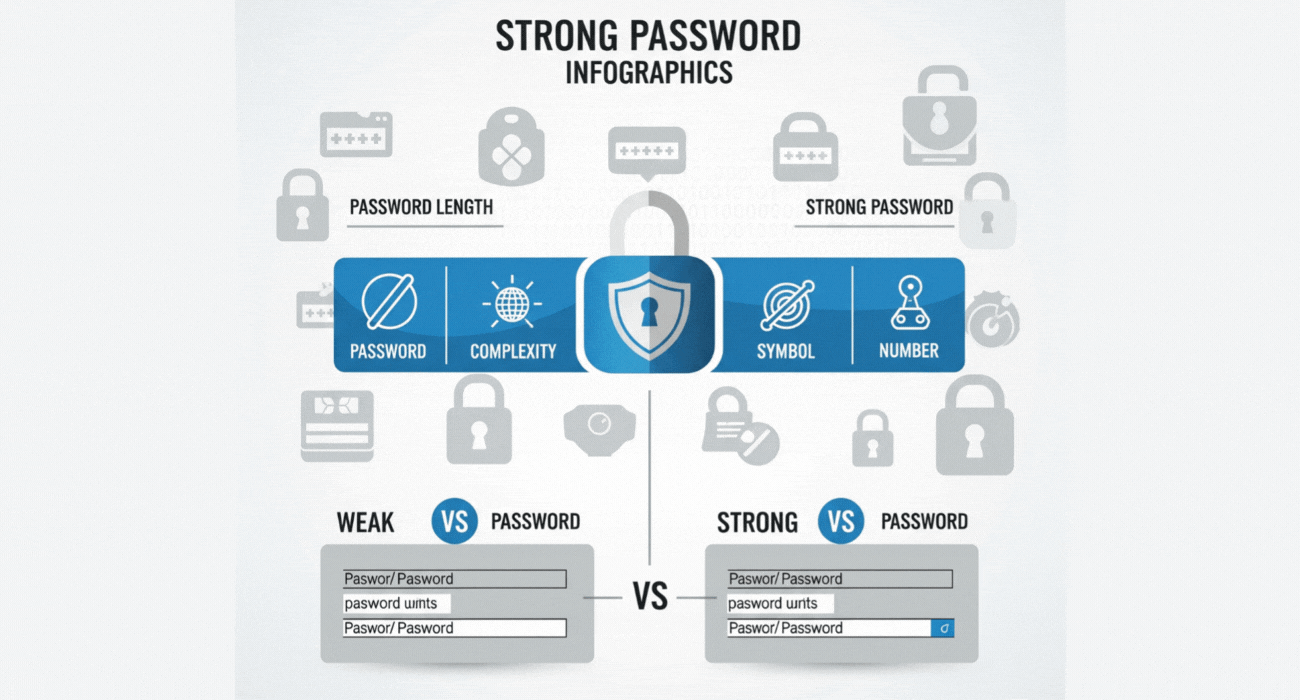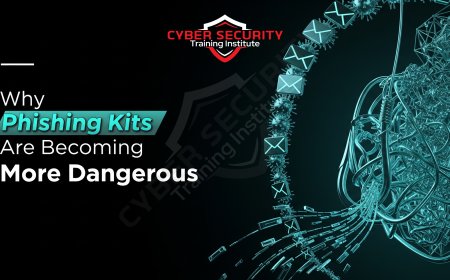How to Create Strong and Secure Passwords
🔐 Would You Hand Over Your House Keys to a Stranger? No? Then why treat your online security any differently? In today’s hyper-connected digital world, your password isn’t just a gatekeeper—it’s the guardian of your identity, your money, and your private life. Yet, millions of people still use simple, predictable passwords that hackers can crack in seconds. Weak passwords are like open invitations to cybercriminals, and the cost of negligence? Stolen data, drained bank accounts, and compromised privacy.Cyber threats like hacking, phishing, and identity theft are no longer rare—they're everywhere. That’s why creating strong, unbreakable passwords has become a basic survival skill in the digital age. Whether you’re logging into your email, social media, or bank account, your password is your first and strongest line of defense. But here’s the good news: creating powerful passwords doesn’t have to be complicated. This guide will walk you through how to build rock-solid, easy-to-remember passwords—even if you’re not tech-savvy. Let’s lock the door before the intruder even gets close.

Table of Contents
- Why Strong Passwords Matter
- What Makes a Password Strong?
- Common Password Mistakes to Avoid
- How to Create a Strong Password
- Using Password Managers
- Two-Factor Authentication (2FA)
- Password Strength Comparison Table
- Tips for Maintaining Password Security
- Conclusion
- Frequently Asked Questions (FAQs)
Why Strong Passwords Matter
Passwords are your first line of defense against unauthorized access to your accounts. A weak password can be guessed or cracked in seconds, giving hackers access to your personal information, financial details, or even your identity. In 2023, over 2.6 billion personal records were exposed in data breaches worldwide, many due to weak passwords. A strong password reduces the risk of becoming a victim of phishing, brute-force attacks (where hackers try thousands of password combinations), or credential stuffing (using stolen passwords from one site to access others).
Besides protecting your accounts, strong passwords also safeguard your reputation and peace of mind. Imagine someone accessing your social media to post embarrassing content or draining your bank account because of a predictable password. By investing a little time in creating secure passwords, you can avoid these nightmares.
What Makes a Password Strong?
A strong password is one that’s difficult for both humans and computers to guess. Here are the key characteristics of a strong password:
- Length: At least 12 characters. Longer passwords are harder to crack.
- Complexity: A mix of uppercase letters, lowercase letters, numbers, and special characters (like @, #, or $).
- Unpredictability: Avoids common words, phrases, or patterns like “password123” or “qwerty.”
- Uniqueness: Different for every account to prevent one breach from compromising multiple accounts.
For example, a password like “Tr0ub4dor&3xplor3r” is much stronger than “password1” because it’s long, complex, and unpredictable.
Common Password Mistakes to Avoid
Many people unintentionally weaken their security by making these common mistakes:
- Reusing passwords across sites: If one site is hacked, all your accounts are at risk.
- Using personal information: Names, birthdays, or addresses are easy for hackers to find.
- Using common words or patterns: Passwords like “letmein” or “123456” are among the first hackers try.
- Writing passwords down insecurely: Storing them on sticky notes or unencrypted files is risky.
- Not updating passwords regularly: Old passwords may already be compromised without you knowing.
By avoiding these pitfalls, you can significantly boost your account security.
How to Create a Strong Password
Creating a strong password doesn’t have to be complicated. Follow these steps to craft one that’s both secure and memorable:
- Use a passphrase: Combine random words with numbers and symbols, like “BlueSky!Coffee9Rain.” It’s easier to remember than a random string but still strong.
- Start with a sentence: Take a memorable sentence and use the first letter of each word, mixing in numbers and symbols. For example, “I love to hike in the mountains!” becomes “Il2h!tm9.”
- Avoid dictionary words alone: Hackers use tools that try every word in the dictionary. Mix things up!
- Use a random password generator: Tools like LastPass or 1Password can create complex passwords for you.
- Make it unique: Never reuse a password. Modify it slightly for each account, like adding the site’s name (e.g., “BlueSky!Coffee9Rain_Gmail”).
Pro tip: Test your password’s strength using online tools like Kaspersky’s Password Checker to see how long it would take a hacker to crack it.
Using Password Managers
Remembering dozens of unique, complex passwords is tough. That’s where password managers come in. These tools store your passwords securely, generate strong ones, and auto-fill them when you log in. Popular options include LastPass, 1Password, and Bitwarden.
Here’s why you should consider a password manager:
- Convenience: Access all your passwords with one master password.
- Security: Passwords are encrypted, so even if the manager is hacked, your data is safe.
- Cross-device syncing: Use your passwords on your phone, laptop, or tablet.
Just make sure your master password is extra strong, as it’s the key to all your other passwords!
Two-Factor Authentication (2FA)
Even the strongest password isn’t foolproof. Two-factor authentication (2FA) adds an extra layer of security by requiring a second form of verification, like a code sent to your phone or an authentication app (e.g., Google Authenticator). Here’s why 2FA is a game-changer:
- Extra protection: Even if someone steals your password, they can’t log in without the second factor.
- Easy to set up: Most websites (like Google, Facebook, and banks) offer 2FA in their security settings.
- Variety of methods: Choose from text messages, apps, or hardware keys for convenience.
Enable 2FA wherever possible—it’s one of the easiest ways to boost your security.
Password Strength Comparison Table
| Password Example | Strength | Time to Crack (Estimated) | Why It’s Weak/Strong |
|---|---|---|---|
| password | Weak | Instant | Common word, short, no complexity |
| P@ssw0rd123 | Moderate | A few hours | Better, but still predictable |
| Tr0ub4dor&3xplor3r | Strong | Centuries | Long, complex, unpredictable |
| SunnyHill!2023Bank | Very Strong | Millennia | Passphrase, unique, site-specific |
Tips for Maintaining Password Security
Creating a strong password is just the start. Here’s how to keep your accounts secure over time:
- Update passwords regularly: Change them every 6–12 months or immediately if a site reports a breach.
- Monitor for breaches: Use services like Have I Been Pwned to check if your email or passwords have been exposed.
- Beware of phishing: Never enter your password on a site you don’t trust or after clicking a suspicious link.
- Use secure networks: Avoid logging into sensitive accounts on public Wi-Fi without a VPN.
- Back up your passwords: Store them in a password manager or a secure, encrypted file, not on paper.
Conclusion
Creating strong and secure passwords is a simple yet powerful way to protect your digital life. By using long, complex, and unique passwords, avoiding common mistakes, and leveraging tools like password managers and 2FA, you can significantly reduce your risk of being hacked. Cybersecurity doesn’t have to be overwhelming—even small steps, like replacing “password123” with a passphrase like “CloudyTrail!9Moon,” can make a big difference. Start today by auditing your passwords and enabling 2FA on your most important accounts. Stay proactive, and keep your digital keys safe!
Frequently Asked Questions (FAQs)
What is a strong password?
A strong password is at least 12 characters long, includes a mix of uppercase, lowercase, numbers, and symbols, and is unique to each account.
Why shouldn’t I reuse passwords?
Reusing passwords means a single breach can compromise multiple accounts. Always use unique passwords.
How often should I change my passwords?
Change passwords every 6–12 months or immediately after a data breach.
Are password managers safe to use?
Yes, reputable password managers encrypt your data, making them secure as long as your master password is strong.
What is two-factor authentication (2FA)?
2FA requires a second form of verification, like a code sent to your phone, in addition to your password.
Can I write down my passwords?
It’s risky unless stored securely, like in a password manager or encrypted file. Avoid sticky notes or unsecure apps.
What’s a passphrase?
A passphrase is a longer password made of random words, numbers, and symbols, like “RainyTree!7Star.”
How do I know if my password is strong enough?
Use online tools like Kaspersky’s Password Checker to estimate how long it would take to crack your password.
Should I use my name or birthday in passwords?
No, personal information is easy for hackers to guess. Use random words or phrases instead.
What’s the easiest way to create a strong password?
Use a passphrase or a random password generator for a secure, unique password.
Can hackers crack any password?
Given enough time, yes, but strong, long passwords can take centuries to crack, making them impractical targets.
Is it safe to store passwords in my browser?
Browser storage is convenient but less secure than a dedicated password manager. Use with caution.
What’s a brute-force attack?
A brute-force attack is when hackers use software to try thousands of password combinations to break into an account.
Should I use the same password for unimportant accounts?
No, even minor accounts can be entry points for hackers. Use unique passwords for all accounts.
How do I enable 2FA?
Go to the security settings of your account (e.g., Google, Facebook) and follow the prompts to enable 2FA.
Are random password generators reliable?
Yes, reputable generators create complex, unpredictable passwords that are hard to crack.
What should I do if my password is exposed in a breach?
Change it immediately and enable 2FA. Check other accounts for reuse and update them too.
Can I use the same base password with slight changes?
It’s better than reusing the same password, but ideally, use completely unique passwords for each account.
What’s the best password manager?
Popular options like LastPass, 1Password, and Bitwarden are all reliable. Choose one that fits your needs.
How do I protect my passwords on public Wi-Fi?
Use a VPN to encrypt your connection, and avoid logging into sensitive accounts on public networks.
What's Your Reaction?
 Like
0
Like
0
 Dislike
0
Dislike
0
 Love
0
Love
0
 Funny
0
Funny
0
 Angry
0
Angry
0
 Sad
0
Sad
0
 Wow
0
Wow
0















